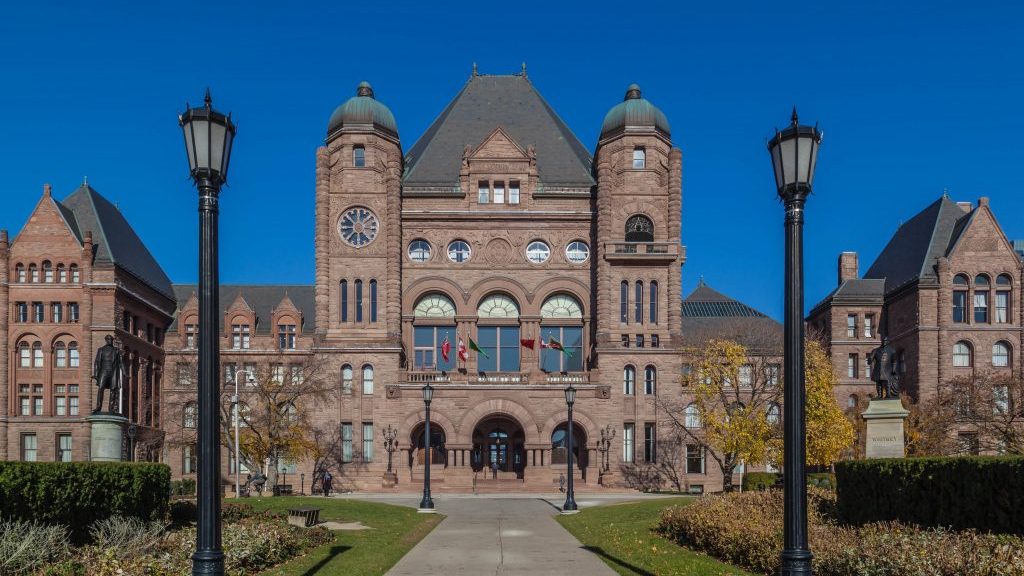If it becomes law, Bill 66, Restoring Ontario’s Competitiveness Act, 2018, could allow developments to be approved without environmental protections and growth management policies, which is cause for concern, states the Pembina Institute.
Carolyn Kim, director of city building on the transportation and urban solutions team with the institute, recently published a blog entitled How proposed changes to the Planning Act will impact Ontarians. In it, she states the bill could “result in real, adverse and potentially irreversible effects to Ontario’s land, housing and climate.”
“Our interest in Bill 66 is the potential impacts from a land use and planning perspective,” said Kim. “If the bill is passed then it would have serious concerns and implications to how we plan and develop our cities across Ontario, not just in specific pockets like the Greater Golden Horseshoe or the Greenbelt.”
The bill was introduced by the Doug Ford government Dec. 6 and the public comment period ends on Jan. 20.
“What we can see today from the proposed bill is that it’s framed as attempting to cut red tape and facilitate development in the province but we believe it would result in adverse effects in terms of land use planning in the province and have implications to public health and our environment that includes access to clean water and a clean environment,” said Kim.
The Pembina Institute is a not-for-profit, non-partisan think-tank that advocates for public policies that support the clean economy.
The proposed changes in Bill 66 as it stands today take us in the wrong direction
— Carolyn Kim
Pembina Institute
The bill aims to amend the Planning Act and give municipalities the power to create a new type of zoning tool, called an open-for-business planning bylaw.
“Our top concerns around that is that development projects that would be pursuant to the open-for-business planning tool could bypass essentially all substantive environmental protections and planning policies that ensure development occurs in the province in a healthy and sustainable way,” Kim explained. “It would bypass policies that are in the Planning Act, Places to Grow, the Oak Ridges Moraine Conservation Act, the Greenbelt Act.
It would also allow development projects to bypass municipal plans such as official plans or site plans. These are all the checks and balances that we have in our planning framework in the province to ensure that developments are meeting the due diligence requirements and are ensuring that developments are in the best interest of the public.”
It may also undermine the Growth Plan’s vision to strategically grow in areas with existing or planned infrastructure and services, Kim added.
She said the bill could weaken the democratic planning process.
To use an open-for-business planning bylaw, a municipality must pass a resolution requesting the minister of municipal affairs’ approval, Kim explained. The municipality is not required to hold public meetings if it decides to approve a development using an open-for-business planning bylaw.
“The bill will dramatically weaken the public’s right to comment on development projects that might affect the environment including access to clean water, natural heritage systems and agricultural lands,” states the blog post.
The proposed bill could also create an incoherent approach to economic development and may encourage fragmented economic investments across the province, putting municipalities in further competition with each other for employment development, Kim stated in the blog.
“The bill states that the minister of municipal affairs has the authority to approve the open-for-business planning bylaw in a jurisdiction but it may not approve that bylaw in another jurisdiction or it would have differing conditions across municipalities,” she explained.
“In that case it would create a patchwork approach to an economic development strategy for the province. That’s why we hope that these proposed changes don’t come to fruition.
“The proposed changes in Bill 66 as it stands today take us in the wrong direction.”
Kim said the Pembina Institute supports enabling policies and initiatives from the government to support businesses, attract investments and create jobs. While ensuring development occurs at a fast pace is important, it should not occur at all costs.
“We recognize the need for municipalities to have enabling policies to respond to a changing and growing economy and respond to the population growth that we are experiencing but there is a real need to find that balance between attracting businesses, accommodating growth and also making sure that we plan our cities and our communities in a smart and sustainable way,” said Kim.
“I think there are a lot of opportunities to remove redundancies in terms of the development approvals process, make sure developments are being approved at a quicker pace and therefore being less costly, but there are other opportunities to do that and I don’t think that Bill 66 gets at that.”











Recent Comments